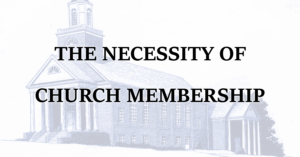 What does it look like when there is a move of God in a Church…? in a locality?
What does it look like when there is a move of God in a Church…? in a locality?
Some people think the following is what it might look like (this is a direct quote from a recent meeting in Australia this week):
“It was really a beautiful night with Holy Spirit! We worshipped for a while and it was just nice, but we had a bit of a silent moment which turned into roaring laughter, at which point (two people named) started handing out chocolates that they had bought the day before! So of course that caused even more joy! The chocolates were Lindt ‘champagne’ flavour!! Haha. We were discussing later the prophetic symbol of champagne being a drink for royalty, it was so special. There was also lots of dancing! So much joy, I haven’t heard that kind of holy laughter since I was young, in Rodney Howard Browne meetings.”
Really? This was the Holy Spirit at work?
Forget the fact that absolutely NONE of this stuff can be found in the Bible… nothing of the kind happened in the Book of Acts.
I was a Pastor involved in this silliness for far longer than I should have been (in the 1990’s). People were always seeking the next new thing – the next novel experience. Some chased across town, states or even countries to find churches that said they had seen angel dust in the meetings. Some chased the “laughing” thing, flying to Toronto where “revival” had broken out in the Airport Church there – wanting to be “drunk” on God rather than intoxicated by an alcoholic beverage – hours on end were spent rolling on floors, laughing hysterically. The weirder it was (there were accounts of people ‘barking” and acting like animals), the more people thought God was surely at work.
Some of you (readers) have never heard of such things and this is all very strange and weird to you. That is because – IT IS VERY STRANGE AND VERY WEIRD. Its good you have not encountered this – but believe me, this was a “thing” in the 90’s, and some people still seek these kinds of manifestations as proof of God being among them.
No one wanted to say this was strange (out-loud anyway) because…. well… no one wanted to “grieve” the Holy Spirit. The Pharisees were guilty of blaspheming the Holy Spirit when they saw Jesus in action, saying that the power behind the miracles He was doing was the devil… and for sure, no one wanted to be a Pharisee.
But ladies and gentlemen – there is nothing wrong with asking “are any of these manifestations found in the Bible? Can you assure me that any of this has a basis in Scripture?” Nothing wrong at all!
In fact, if anyone were to ask Jesus or the Apostles to show where they were getting what they were doing by the Scripture, I don’t think they would have been in any way offended. When the Apostle Paul was teaching the Bereans, they were commended for checking his teaching out by the Scripture – commended, not rebuked. Here’s what we read:
Acts 17:10 The brethren immediately sent Paul and Silas away by night to Berea, and when they arrived, they went into the synagogue of the Jews. 11 Now these were more noble-minded than those in Thessalonica, for they received the word with great eagerness, examining the Scriptures daily to see whether these things were so. 12 Therefore many of them believed…
Paul could have said “Hey, I am an Apostle, trust me…” But he didn’t. He was very happy to find people who would test his teaching by the standard of the word of God, knowing this was the entire basis of his ministry anyway. He knew that Scripture was the basis for all he was doing and so he wasn’t fearful or threatened when people would go to the Scripture to examine his claims.
And the result was this – BECAUSE what Paul was teaching had its foundation in the word of God, those who checked this out, found his teaching there, and came to believe the message he brought – not because Paul was a super apostle, or had charisma coming out of his pours – but because what he taught was Biblical.
 Just on the so called “Toronto Blessing” let me say this. The fruit of a move of God is seen over time. We can look back and see fruit – either good fruit or bad fruit. And sadly, when I see the leader of Toronto Church (John Arnott) embracing the Pope (and with him, his doctrines) as a brother in Christ… that for me in one photo op is the lasting fruit of Toronto – the gospel is unimportant – false gospels are embraced – all in the name of love, unity and the Holy Spirit. If the Holy Spirit was at work – he would have made the gospel clearer to people, not fuzzy or blurred and certainly not discarded.
Just on the so called “Toronto Blessing” let me say this. The fruit of a move of God is seen over time. We can look back and see fruit – either good fruit or bad fruit. And sadly, when I see the leader of Toronto Church (John Arnott) embracing the Pope (and with him, his doctrines) as a brother in Christ… that for me in one photo op is the lasting fruit of Toronto – the gospel is unimportant – false gospels are embraced – all in the name of love, unity and the Holy Spirit. If the Holy Spirit was at work – he would have made the gospel clearer to people, not fuzzy or blurred and certainly not discarded.
The Holy Spirit does indeed bring unity among brothers and sisters in Christ. No doubt of that. But never at the expense of the Biblical gospel.
There is a New Testament book entirely given over to this theme – the book of Galatians. And guess what? It is the Holy Spirit who inspired the book.
The book reveals false brothers, who add one work (happens to be circumcision) to the gospel (chapter 2) and at the same time says, “the fruit of the Spirit is love” (chapter 5). Yes, both of these concepts are found in the same book (Galatians). That is because there is no contradiction between the Holy Spirit giving people a love for the true Gospel and pointing out a false one and the fruit of the same Holy Spirit being love, joy, peace, patience, kindness and so on.
So if the silliness described is not a genuine move of God what does a real one look like?
A move of God is when people are awakened to their need of the Lord Jesus Christ as Savior and Lord. It is when they see the one true Sovereign and holy God as majestic, their sin as the treason it truly is, and, cut to the heart, are brought to a deep repentance and faith under the word of God by preachers who herald the word of God (because that is how faith comes, Romans 10). It is where preachers and congregants long for the word of God without dilution, without distraction, without replacement… where children in Christ are urged towards becoming adults in their understanding (1 Cor. 14:20) and can endure sermons which are more than a few minutes of pep talk or success principles, and entire communities are awakened to their need of God, wanting the true God for who He is, not a made up version that allows self to retain its rule on the throne of the heart.
Actually, a true move of God looks a lot like the Protestant Reformation. Without any fear of contradiction, the Reformation (while never perfect) was the greatest and most far reaching move of God outside of the book of Acts. Entire countries were brought under the powerful preaching of the word of God. Kings and Queens, Emperors and Rulers were shaken to the core as the people under their rule came to understand who was truly in charge… the Lord Jesus Christ, King of kings and Lord of lords, who has all authority in heaven and earth. In a move of God the true gospel becomes center stage, based on the sure foundation of the Bible alone, justification (to be declared right in God’s sight by God) is by grace alone received through faith alone in Christ alone, all to the glory of God alone.
My observation – none of those who advocated the silliness described above – none… could articulate the biblical Gospel… and here is the big deception – they thought and continue to think – they are real pals with the Holy Spirit.
But the fact is, they have absolutely no interest whatsoever in what the Holy Spirit has inspired – no interest in the background information on the New Testament (check the bookshelves of the proponents – you won’t find any useful study material, and if you ever do, these kinds of books have not been opened in decades), no interest in hermeneutics (“what’s that?” they say) and no interest in making sure they are taking a passage of Scripture in its proper context. No – that kind of thing is just for folk who believe in “Father, Son and Holy Bible” as one man wrote to me.
BUT – here is the good news. God is doing much in the middle of all this. All over this world He is giving people a hunger to know Him truly, with open Bibles and with good study tools and prayer – asking God to open the Biblical text to the understanding, and to reveal the true God and true Gospel – one that saves sinners from the wrath to come. Yes, over and over, God is doing this on a global scale.
King’s Church is just a small local expression of what the Lord is doing in many churches, in multiple villages, towns and cities, in manifold countries in our world. He is raising up ‘ordinary churches’ who through the ordinary means of grace are making disciples of the Lord Jesus Christ.
No one is falling, rolling, laughing… and no one is bothered by that… it is not on their radar. No one is saying “the Lord told me this or that” unless with the next breath they recite a verse from the Bible.
And that is the point. All the sheep want is to be fed by the Great Shepherd and to know Him intimately through His word. Don’t get me wrong – these people are seeking – seeking with a passion, to know the true God and the true Gospel. When discovering His truth they seek to make the necessary application to their lives. They are caught up in the treasure of knowing the Lord Jesus Christ, intimately, in and by and through His word. They want and seek nothing else.
When you or I encounter such a phenomenon – understand this my friends, we are witnessing a true move of the Holy Spirit of God.
It is happening. May it happen more and more!
For the fame of His name and His glory. Amen!
 Article by Scott Daniel, pastor of Grace Bible Church in Holden, Maine – Original source here
Article by Scott Daniel, pastor of Grace Bible Church in Holden, Maine – Original source here






